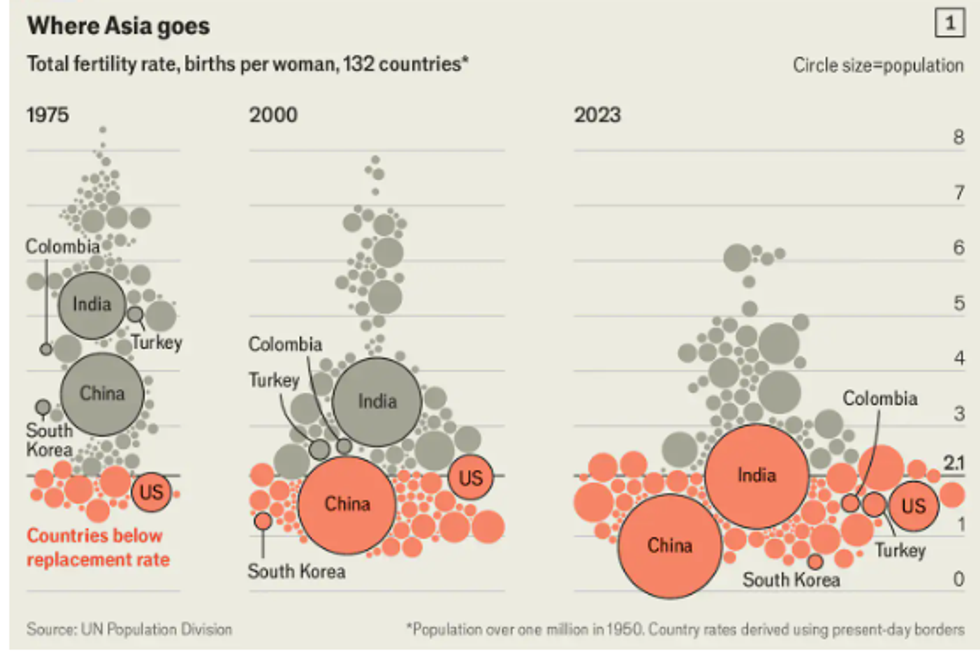Highlights:
- Global fertility rates are declining faster than projected
- Turkey’s fertility rate has dropped to 1.48, far below replacement level
- Bogotá’s fertility rate is 0.91, even lower than Tokyo
- India’s fertility has fallen below replacement, signaling population decline by mid-century
Falling birthrates in Turkey
In Turkey, doctors are witnessing the shift firsthand. Furkan Kayabasoglu, an obstetrician in Istanbul, recalls that he once delivered first, second, and even third babies for many couples. Now, he says, “one and done” parents are the norm. Out of every ten births he attends, only one is a second child.
Turkey’s total fertility rate (TFR) fell to 1.48 last year — well below the 2.1 level required to maintain population size over time. The drop came decades earlier than expected. The United Nations had projected Turkey’s fertility would not sink that low until around 2100.

A global trend of sharper decline
The decline is not limited to Turkey. Fertility is falling faster than expected across rich, middle-income, and poorer countries alike.
In Bogotá, Colombia’s capital, the fertility rate has dropped to just 0.91 children per woman — lower than in Tokyo. India’s fertility has also dipped below replacement level, meaning its population is set to begin shrinking around the middle of the century.
Implications for the future
With fertility rates slumping worldwide, many countries are confronting demographic challenges earlier than expected. Falling birthrates will affect labor markets, economic growth, and even the ability to train enough professionals, as Dr. Kayabasoglu noted about the shortage of new doctors.
Demographers warn that humanity’s population peak could arrive much sooner than once thought, followed by a period of sustained decline.













